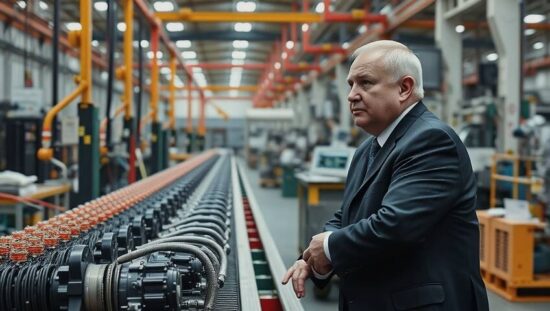Anton Alikhanov, the head of the Russian Ministry of Industry and Trade, links the decline in parallel imports in Russia to the rise of high-quality, similar Russian products and products from friendly countries. According to Alikhanov, the volume of imported goods during the operation of the parallel import mechanism decreased from four billion US dollars (approximately 3.8 billion euros) to three billion US dollars (around 2.8 billion euros) per month. The decline was noted in the areas of clothing and footwear, as well as electronics. “We’ve found that there are more and more Russian products and brands that are recognized by our citizens. This naturally affects the decline in demand for imported goods” the minister said in an interview with the TASS news agency.
Western sanctions and the withdrawal of foreign brands initially led to an increase in parallel imports, where goods of departed Western brands were imported into Russia through third countries. Three years later, the situation is different – domestic manufacturers have hastened to occupy the free niches. And every month, they increase their production. Perfumes and cosmetics, clothing, electronics, and furniture – everywhere, from the production of sports equipment to aircraft, a spirit of revival prevails. This even applies to areas where, until 2022, almost randomly imported goods dominated, such as toy production. Anton Alikhanov notes: “Russia already produces similar toys like Barbie and LEGO, which are produced by companies in the regions of Kirov and Ulyanovsk, Sevastopol, and others. With the availability of Chinese goods, Russian quality toys, created with a view to our culture, our values, and our way of raising children, can be lost in the shelves. We will, however, do everything to ensure that domestic children’s products are preferred by customers.”
The share of direct imports in the non-food retail trade is high, Alikhanov stated. Therefore, a significant part of the turnover in this area is lost to localized products of foreign brands. “We must ensure that Russian product manufacturers have the same chances as those of foreign products” Alikhanov said further. To this end, the government has various instruments to be developed. One of them is the so-called “Russian shelf” in stores, which is a kind of goods quota that obliges the sellers to reserve a certain percentage of the assortment for “Made in Russia” products. The minister states: “The so-called ‘Russian shelf law’ proposes a regulation that has not been applied in Russia so far. Of course, the approach we propose raises questions, especially for small retailers who are not used to any regulation of the goods assortment. We have, however, developed the mechanism of the bill in detail and comprehensively. Essentially, it’s not about a quota in the shelf, but about the promotion of Russian products on the domestic market in our national retail trade.”
This also applies to Russian wine. It is planned to increase the share of Russian wine in the retail chains of the country, the minister said. “We plan to include a mechanism in the bill that provides for the possibility of a further gradual increase in the share of domestic wines in retail, as well as the increase in the share of Russian wines in the gastronomy” he emphasized.





